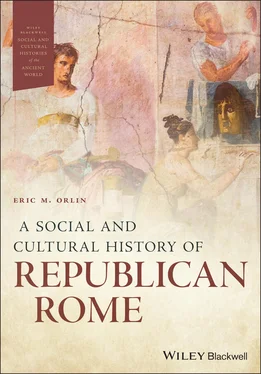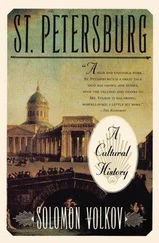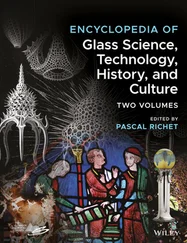Not only did the Romans have to respond to Greek culture, but the Greeks eventually had to learn to live in a world dominated by Roman power, and several Greeks left us valuable sources. Chief among these is the historian Polybius(c. 200–120 BCE). Polybius was an aristocratic Greek who was sent to Rome to serve as a hostage to ensure the good behavior of the defeated Greeks following a Roman military victory in 167 BCE. As an upper-class Greek, Polybius was accepted into Roman aristocratic circles. Far from being angry at the Romans for their treatment of him, Polybius grew to respect and admire the Romans, to the extent that he chose to stay in Rome even when the Romans allowed him and the other hostages to return home. Polybius took advantage of his time in Rome and of his connections to compose a history of the rise of Roman power, with an eye toward explaining to his countrymen how this upstart city to the west had become the dominant power in the Mediterranean.
Polybius’ account strikes most readers as evenhanded, but his dependence on some Roman families forces us to examine in each incident how far Polybius might have been attempting to flatter particular individuals. As we have already discussed, Polybius’ purpose in writing is also critical to understanding his text, and he tells us the following in that regard:
to discover, in the first place, the words actually spoken, whatever they were, and next to ascertain the reason why what was done or spoken led to failure or success. For the mere statement of a fact may interest us but is of no benefit to us: but when we add the cause of it, study of history becomes fruitful ( Histories , 12.25).
Historians trained in North America and Europe have mostly adopted these principles – to understand causes and not just list facts – so Polybius is often held in high regard today.
Polybius’ greatest value to the social and cultural historian may actually lie in the fact that he often appears as what we might call a cultural anthropologist. As a Greek living in Rome, Polybius found himself confronted with customs and behaviors that seemed strange to him. In his concern to explain the Romans to his countrymen, he took the time to describe things that Roman authors took for granted. For instance, our best description of a Roman funeral comes from Polybius, and he also left us a detailed discussion of the Roman government. We still need to ask questions of Polybius; as a Greek, he often used his Greek experience to understand Roman customs, and on occasion seems to have misunderstood Roman behavior because of that perspective. However, he often provides us with crucial data missing from Roman sources, and the fact that he was present in Rome during a crucial period in Rome’s expansion makes him an invaluable resource.
Another Greek deserves mention in this regard: the biographer and moralist Plutarch(45–127 CE). Although he wrote substantially later than the people he described, Plutarch was able to draw upon many sources contemporary with those individuals that no longer survive for us. Among his numerous writings, Plutarch wrote a series of Parallel Lives , matching a figure from Roman history with one from Greece. Perhaps the greatest value for our study lies in the fact that he included many details about the private or personal lives of the people involved, allowing us to learn something of the practices of the Roman upper class. At the same time, we need again to ask about Plutarch’s purpose in writing: in most cases he aimed to provide a moral lesson from these lives and he explicitly matched his pairs in order to draw moral comparisons between the Greek and the Roman.
Plutarch’s treatment of Romulus provides an example of his method and a good contrast to Livy. Plutarch’s version of the fateful clash between Romulus and Remus states that Romulus lied about the number of birds that he saw. It was this deceit that led Remus to make fun of the walls and jump over them, which is when Romulus killed him. Plutarch’s story thus presents Romulus in a much less flattering light than Livy does. Indeed, Greek texts are often less sympathetic to the Romans, perhaps because they had no interest in celebrating Roman greatness.
Vae Victis!
In 390 BCE, a tribe of Gauls (modern France) made their way south across the Alps toward Rome. They put the Romans to flight at the River Allia, 11 miles from Rome, and laid siege to the city. The Romans sent their women, children, and religious items out of the city for safekeeping, while the men of military age took up a position on the Capitoline hill, the highest and most easily defended of Rome’s seven hills. Eventually the defenders ran short on food and negotiated surrender terms with the Gauls: in exchange for an agreed sum of gold, the Gauls would depart from the city.
To add insult to injury, the Gauls used unequal weights as the gold was being measured, so that the Romans would end up paying more than the agreed sum. When the Romans objected, the Gallic leader threw his sword on the weights, making the Romans add extra gold to cover its weight as well. As he did so, he uttered the words “ Vae victis (Woe to the conquered)!” reminding the Romans that those defeated in war have no bargaining power.
Livy describes what happened next:
By good fortune it happened that before the infamous ransom was completed and all the gold weighed out, the Dictator [Camillus] appeared on the scene and ordered the gold to be carried away and the Gauls to move off.… Fortune now turned, divine aid and human skill were on the side of Rome. At the very first encounter the Gauls were routed as easily as they had conquered at the Allia (Livy, 5.49).
Diodorus Siculus, a Greek contemporary of Livy, tells a different story however:
[when] the Romans sent ambassadors to negotiate a peace, they [the Gauls] were persuaded to leave the city and to withdraw from Roman territory in exchange for one thousand pounds of gold (Diodorus, 14.116).
Diodorus knows nothing of the miraculous arrival of the Roman dictator, and neither does the very brief mention of Polybius, another Greek who is our earliest surviving source on this episode. And even Roman sources, including Livy, acknowledge the devastation to the city caused by the Gauls. The image that emerges from all of our sources is more consistent with the notion of the Gauls plundering the city and then moving off.
Even if the Greek accounts provide a useful corrective, Livy’s account is still valuable. It reveals an attempt to save face, to avoid having to admit that Rome had once paid bribes to secure its survival. More than that, Livy’s account helps us understand Roman imperialism. The story of Vae victis became an important part of the Roman mentality: if losers have no bargaining rights, the Romans resolved never to suffer this fate again and so developed a stronger military that they used to engage anyone who even remotely threatened their security.
That does not automatically make Greek sources more reliable. Plutarch had his own purposes in writing. In his commentary on the character of Romulus, Plutarch made clear that he saw Romulus as a tyrant, guilty “of unreasoning anger or hasty and senseless wrath,” but he also includes the unlikely account of Romulus’ assassination. His version seems less concerned with Caesar, perhaps because he was writing 200 years later. Instead his text serves to reinforce his moralizing critique: Romulus was deservedly killed because he was a tyrant. Moralizing aims can affect a historian’s account as much as contemporary politics or a desire to paint a founder in a positive light.
Now that we have begun to develop a list of questions that we might ask of our literary sources, it is time to turn to the other major source of information for the Roman Republic: the material evidence. For a number of topics (visual arts and architecture, the city of Rome, the economy) the main source of evidence is not literary but physical. First and foremost, there is information that has been gathered through the practice of archaeology, the systematic uncovering of ancient remains in the earth, including private houses, cemeteries, roads, and large public structures such as temples and grain warehouses. The Roman state and individual Romans also left writings on stone or bronze, from public decrees to private tombstones; epigraphy, which is the analysis of these inscriptions, provides another key source of information. Numismatics, or the study of ancient coins, provides a third key primary source, not just for the economic information that can be derived but from the messages that Romans sent through the design on their coins. Each will be discussed more fully in the section below, to understand the questions we should ask of each source.
Читать дальше












